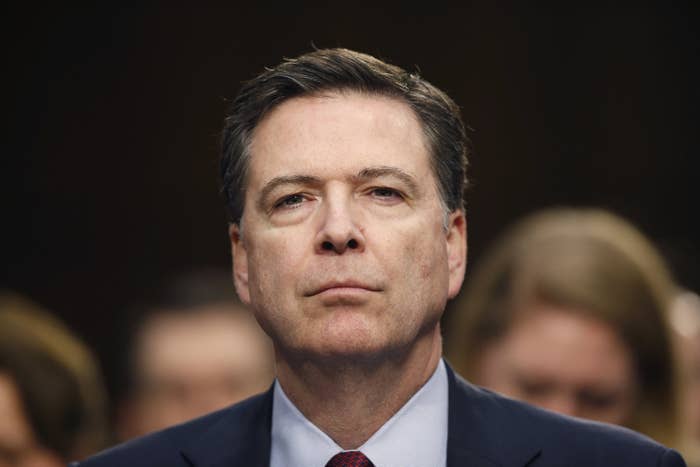
More than two months after Syed Farook and Tashfeen Malik killed 14 people in an apparent ISIS-inspired attack in San Bernardino, the FBI still hasn't managed to unlock one of their phones.
FBI Director James Comey told a Senate committee on Tuesday that the locked phone is a major impediment to an important investigation — and he said he hopes technology companies find a way to provide law enforcement better access.
"We still have one of those killer’s phones that we have not been able to open," Comey told the Senate Select Committee on Intelligence.
The hearing was part of an annual discussion between senators and intelligence officials on worldwide threats. Increasing encryption — both in terms of locked phones and digital communications — is hamstringing criminal investigations and federal agents working to protect national security, Comey said.
"All of our lives are becoming increasingly digital," he said. "Those devices are going to hold evidence of child pornography, communications someone made before they were killed, before they went missing, the evidence that would be necessary to solve the crime."

Comey added he is not seeking a "back door," or the total access that has been met with pushback by some phone and technology companies.
Apple, Facebook, Google, Microsoft, and Twitter urged UK lawmakers last month to guarantee encryption, citing the security measures as necessary to protecting law-abiding citizens. Lawmakers in New York are considering mandating backdoors, which one security researcher said would make phones not just accessible to law enforcement, but also to hackers.
"What we would like is a world where people are able to comply with court orders," Comey told senators.
Law enforcement agents who have successfully obtained a search warrant are not seeking server access or source code, but rather evidence when there is probable cause of a crime, Comey added.
Already, companies including Facebook and Twitter provide user information to authorities who have obtained a subpoena or court order. But some companies, Comey said, have said they are not able to unlock devices or provide unencrypted communication.
"I don’t want a door, I don’t want a window, I don’t want a sliding glass door," Comey said. "I would like people to comply with court orders, and that’s the conversation we’re trying to have."
